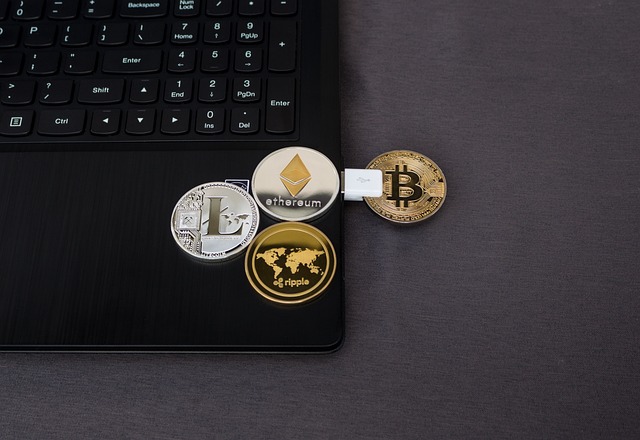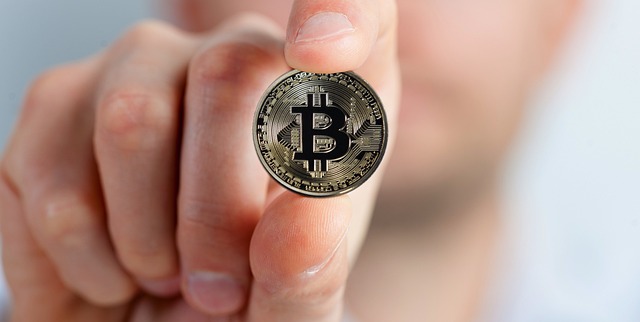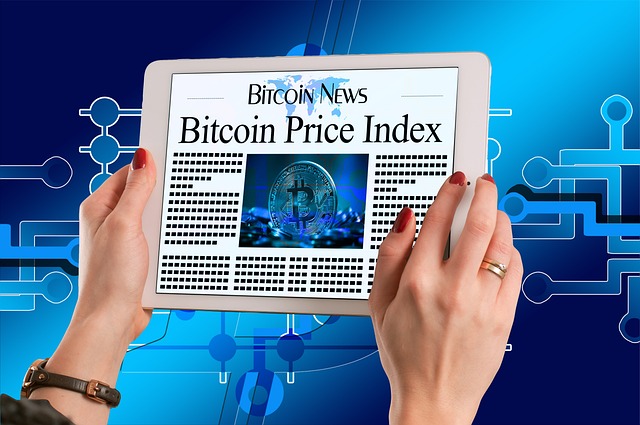The Pros of DeFi: Unlocking Financial Opportunities
The Pros of DeFi: Unlocking Financial Opportunities

Understanding DeFi: A Primer on Decentralized Finance
Decentralized Finance, or DeFi, is a term that has been making waves in the financial world. Essentially, DeFi is a movement aimed at transforming traditional financial systems into decentralized, transparent, and accessible networks. Unlike traditional finance, which relies heavily on intermediaries like banks, DeFi leverages blockchain technology to enable direct peer-to-peer transactions and smart contracts.
One of the key principles of DeFi is the elimination of intermediaries. This means that users can transact with each other directly, without the need for centralized institutions. This not only cuts down on costs but also reduces the potential for data breaches and manipulations. By harnessing the power of blockchain technology, DeFi applications strive to empower individuals, giving them greater control over their financial assets and transactions.
Empowering Individuals: How DeFi Gives Financial Control to the Masses
Decentralized Finance, or DeFi, is revolutionizing the way individuals take control of their finances. With traditional financial systems, banks and other intermediaries have always been gatekeepers, limiting access to financial services for many. However, DeFi changes this dynamic by providing an open and permissionless platform for anyone with an internet connection to participate. By removing these barriers, DeFi empowers individuals to manage their assets and make financial decisions without relying on third parties.
One of the key aspects of DeFi is that it allows users to maintain control over their funds. In traditional finance, individuals often have to rely on centralized institutions to hold and manage their money, which can be prone to security breaches or even misuse of funds. With DeFi, the use of smart contracts and blockchain technology ensures that users have full control over their assets. By eliminating the need for intermediaries, individuals can eliminate the risk of funds being frozen or mismanaged, giving them a higher level of financial autonomy and security.
By putting financial control back into the hands of individuals, DeFi is democratizing the financial landscape. It allows anyone, regardless of their background or location, to access and use a wide range of financial services. Whether it’s lending, borrowing, trading, or investing, DeFi platforms offer a variety of tools that were previously only available to the privileged few. This leveling of the playing field opens up new opportunities for underserved populations, enabling them to build wealth and participate more actively in the global economy.
In conclusion, DeFi is transforming the traditional financial system by providing individuals with the power to take control of their own finances. By eliminating intermediaries and enabling direct ownership and management of assets, DeFi empowers individuals with unprecedented financial autonomy and security. Its inclusive nature ensures that anyone with an internet connection can participate and access a wide range of financial services, ultimately democratizing the financial landscape and giving individuals the opportunity to thrive in the ever-evolving digital economy.
Low Barrier to Entry: Accessibility and Inclusivity in DeFi
Decentralized Finance (DeFi) has emerged as a game-changer in the financial industry, offering accessibility and inclusivity to individuals around the world. One of the key benefits that DeFi brings to the table is its low barrier to entry. Unlike traditional financial systems that often require extensive documentation and stringent eligibility criteria, DeFi platforms allow anyone with an internet connection to participate. Whether you’re in a developed nation or an underserved community, DeFi enables you to engage with financial services and products without the need for intermediaries or complex procedures.
The low barrier to entry in DeFi also contributes to its inclusivity. Traditional financial systems have long excluded marginalized or underserved communities due to various reasons, including geographical limitations and lack of financial resources. However, with DeFi, individuals from all walks of life can access financial opportunities on an equal footing. Whether you’re a student, a small business owner, or a low-income earner, DeFi platforms empower you to save, invest, and participate in the global economy. By removing the reliance on traditional banking systems, DeFi ensures that financial services are available to everyone, regardless of their background or location.
Greater Financial Privacy: Securing Your Transactions with DeFi
Securing financial privacy has always been a concern for individuals, especially in an increasingly digital world. In the realm of traditional finance, transactions are often handled by intermediaries such as banks and payment processors, which can compromise privacy and confidentiality. However, with the emergence of decentralized finance (DeFi), individuals now have the opportunity to regain control over their financial transactions and ensure greater privacy.
One of the key features of DeFi is its use of blockchain technology, which enables secure and transparent transactions. Unlike the traditional financial system, where personal information and transaction details are stored in centralized databases, DeFi operates on a decentralized network of computers. This means that transactions are recorded on a public ledger that is visible to all network participants, but without revealing personal details. As a result, individuals can enjoy the benefits of financial privacy, knowing that their transactions are secure and anonymous. Whether it’s making payments, transferring assets, or engaging in complex financial activities, DeFi offers a promising solution for those seeking greater privacy in their financial transactions.
Democratizing Investments: DeFi’s Role in Leveling the Playing Field
Decentralized finance (DeFi) has emerged as a groundbreaking force, empowering individuals from all walks of life to participate in investment opportunities previously reserved for the elite. By utilizing blockchain technology, DeFi eliminates the need for intermediaries, such as banks or brokers, allowing investors to directly engage with decentralized platforms. This disintermediation democratizes the investment landscape, as it removes the barriers created by traditional financial institutions. In turn, individuals can access a wide range of investment products, such as loans, certificates of deposit, and even complex derivatives, without the need for extensive paperwork or complex processes. This accessibility ensures that investment opportunities are no longer exclusively reserved for the wealthy, effectively leveling the playing field for all.
Moreover, DeFi platforms provide greater transparency and accountability, ensuring that investors have complete control and visibility over their funds. Through smart contracts, which are self-executing agreements enforced by the blockchain, investors can trust that their transactions will be carried out as intended without the need for intermediaries to facilitate or verify the process. This eliminates the risk of fraud or manipulation, giving individuals greater confidence in the security of their investments.


Borderless Transactions: The Power of DeFi in Global Finance
The emergence of decentralized finance (DeFi) has unlocked a whole new realm of possibilities for global finance. One of the key advantages offered by DeFi is its ability to facilitate borderless transactions.

By leveraging blockchain technology, DeFi platforms enable users to transact directly with one another, eliminating the need for traditional financial institutions to facilitate cross-border transactions. This not only saves time but also cuts down on costs, making it a game-changer for individuals and businesses alike. Furthermore, the borderless nature of DeFi transactions means that they can be conducted at any time, from anywhere in the world. This accessibility and convenience level the playing field, particularly for individuals in developing countries who may have limited access to traditional financial services.
Financial Innovation: Unleashing Creativity through DeFi
Decentralized Finance (DeFi) has brought about a wave of financial innovation, revolutionizing the way individuals interact with the traditional financial system. With DeFi, the possibilities seem endless, empowering individuals to explore new creative avenues for their financial journeys. By leveraging smart contracts and blockchain technology, DeFi projects have opened the doors to a multitude of innovative applications that were previously unexplored.
One of the most exciting aspects of DeFi is the ability to create and explore new financial products that were previously inaccessible or heavily controlled by traditional banks and intermediaries. Through DeFi protocols, anyone with an internet connection can now participate in lending, borrowing, and investing in a permissionless manner. This accessibility allows individuals to unleash their creativity and experiment with novel financial instruments, driving forward a new era of financial innovation. Whether it’s creating decentralized exchanges, launching new types of collateralized lending platforms, or exploring algorithmic stablecoins, DeFi is a hotbed of innovation, enabling individuals to shape the future of finance.
Reducing Middlemen: The Efficiency of DeFi in Cutting Costs
Decentralized Finance (DeFi) has emerged as a disruptive force in the financial industry, challenging the traditional intermediaries that have long dominated the sector. One of the key benefits of DeFi is its ability to reduce the involvement of middlemen, thereby cutting costs and increasing efficiency. By leveraging blockchain technology and smart contracts, DeFi platforms enable direct peer-to-peer transactions, eliminating the need for intermediaries such as banks or brokers. This not only streamlines the process but also significantly reduces transaction fees, making financial services more accessible and affordable for individuals across the globe.
In the traditional financial system, middlemen play a crucial role in facilitating transactions, but their involvement often comes at a high cost. Banks, for instance, charge fees for various services, such as wire transfers, currency conversions, and even basic account maintenance. By contrast, DeFi removes these unnecessary intermediaries, allowing individuals to transact directly with each other, thus bypassing the need for costly services. This not only saves money but also fosters greater financial inclusivity, as even those without access to traditional banking services can participate in the global economy through DeFi platforms. Furthermore, the transparency and immutability of blockchain technology ensure that transactions are secure and verifiable, offering peace of mind to users while eliminating the need for costly middlemen.
• DeFi platforms leverage blockchain technology and smart contracts to enable direct peer-to-peer transactions, eliminating the need for intermediaries such as banks or brokers.
• This streamlines the process and significantly reduces transaction fees, making financial services more accessible and affordable for individuals worldwide.
• In traditional finance, middlemen like banks charge fees for various services such as wire transfers, currency conversions, and account maintenance.
• DeFi removes these unnecessary intermediaries, allowing individuals to transact directly with each other and bypass costly services.
• This not only saves money but also promotes financial inclusivity by enabling participation in the global economy for those without access to traditional banking services.
• The transparency and immutability of blockchain technology ensure secure and verifiable transactions without relying on costly middlemen.
Enhanced Liquidity: How DeFi Boosts Market Efficiency
Decentralized Finance (DeFi) has emerged as a revolutionary concept that brings enhanced liquidity to the market, resulting in increased market efficiency. Unlike traditional financial systems, which rely on intermediaries such as banks or brokers, DeFi leverages blockchain technology to provide direct peer-to-peer transactions. This peer-to-peer nature eliminates the need for intermediaries, allowing users to transact directly with one another, bypassing the slow and costly processes involved in traditional finance.
By eliminating intermediaries and enabling direct transactions, DeFi platforms streamline the process of buying and selling assets, thus boosting market efficiency. In a traditional financial system, liquidity is often limited and fragmented among different institutions. However, DeFi platforms provide a common marketplace where users can easily access a wide range of assets, creating a more liquid and efficient market. This increased liquidity not only allows for faster and more cost-effective transactions but also facilitates greater price discovery, enabling market participants to make more informed decisions. In turn, this enhanced liquidity strengthens market efficiency, making it easier for individuals to buy, sell, and trade assets in a more seamless and frictionless manner.
Future Outlook: The Potential of DeFi in Transforming the Financial Landscape
Decentralized Finance (DeFi) has shown immense potential in transforming the financial landscape, paving the way for a more inclusive and accessible system. With its ability to bypass intermediaries and establish peer-to-peer transactions, DeFi has the power to revolutionize traditional financial services. As we look into the future, it is evident that DeFi has the potential to give back control to individuals, enabling greater financial freedom and empowerment.
One of the most promising aspects of DeFi is its ability to democratize investments, leveling the playing field for individuals around the world. Traditional investment opportunities have often been limited to a select few, leaving many people excluded from the potential benefits. However, DeFi opens up a world of possibilities by allowing anyone with an internet connection to access and participate in a wide range of financial activities. This means that individuals, regardless of their background or geography, can now engage in investments and experience the potential for significant financial growth. As DeFi continues to evolve, it has the potential to reshape the financial landscape, making it more equitable and rewarding for all.
What is DeFi?
DeFi stands for Decentralized Finance, which refers to a system that enables financial transactions and services through decentralized platforms like blockchain.
How does DeFi empower individuals?
DeFi gives individuals more control over their finances by eliminating the need for intermediaries like banks. It allows people to access financial services directly, such as lending, borrowing, and investing, without relying on traditional institutions.
Is DeFi accessible to everyone?
Yes, DeFi offers a low barrier to entry, making it accessible to anyone with an internet connection. It doesn’t discriminate based on geographical location or background, allowing individuals from all walks of life to participate in the financial ecosystem.
How does DeFi ensure financial privacy?
DeFi uses advanced encryption and decentralized networks to secure transactions and protect users’ financial privacy. It allows individuals to have greater control over their personal information and ensures that their transactions are confidential.
What role does DeFi play in democratizing investments?
DeFi platforms enable individuals to invest in a wide range of assets, including stocks, cryptocurrencies, and real estate, without the need for large amounts of capital. It allows for fractional ownership, making investments more accessible to the masses.
Can DeFi be used for cross-border transactions?
Absolutely! DeFi eliminates the barriers of traditional finance, enabling seamless and borderless transactions. With DeFi, individuals can send and receive money globally without the need for intermediaries or expensive fees.
How does DeFi encourage financial innovation?
DeFi provides a fertile ground for developers and entrepreneurs to create new financial products and services. It fosters innovation by allowing developers to build on existing open-source protocols, resulting in the creation of innovative solutions that cater to specific financial needs.
How does DeFi reduce costs?
DeFi eliminates the need for intermediaries, such as banks or brokers, who often charge hefty fees. By cutting out the middlemen, DeFi reduces costs associated with transactions, loans, and investments, making financial services more affordable for individuals.
What is the impact of DeFi on market efficiency?
DeFi enhances market liquidity by enabling the seamless exchange of assets. It provides a platform where individuals can trade directly with each other, increasing market efficiency and reducing price discrepancies.
What does the future hold for DeFi?
The future of DeFi looks promising. As it continues to evolve, DeFi has the potential to transform the financial landscape by providing greater financial access, innovation, and efficiency. It has the power to revolutionize how we interact with and manage our finances.
Todays Featured Product:
Buy, exchange and grow your crypto securely with a Ledger hardware wallet, combined with the Ledger Live app. It’s never been easier to keep your crypto safe and accessible. Buy direct from Ledger.com and get todays Special Offers Here.




